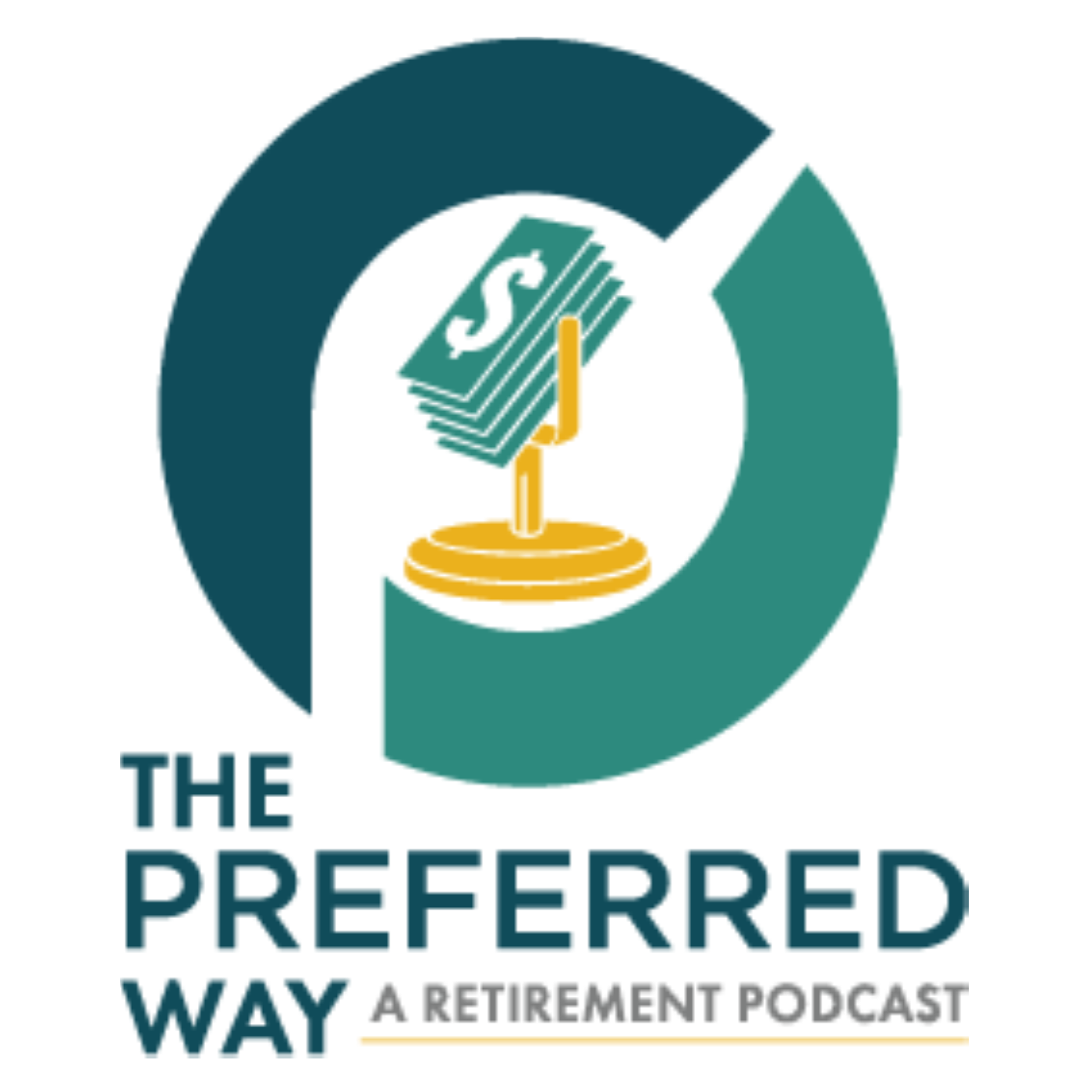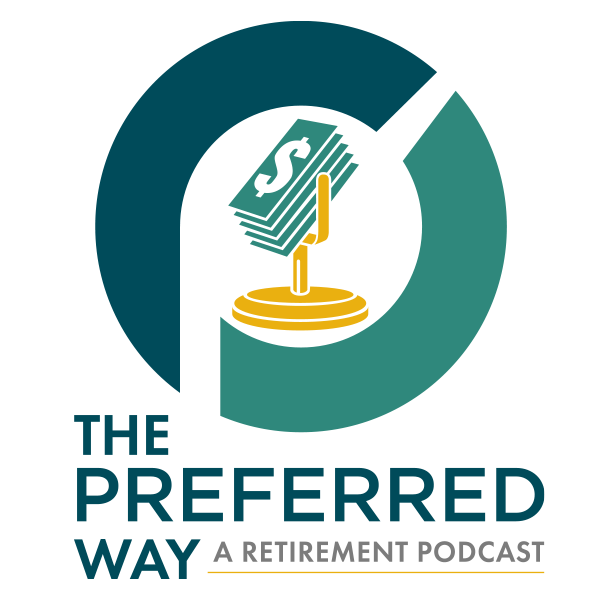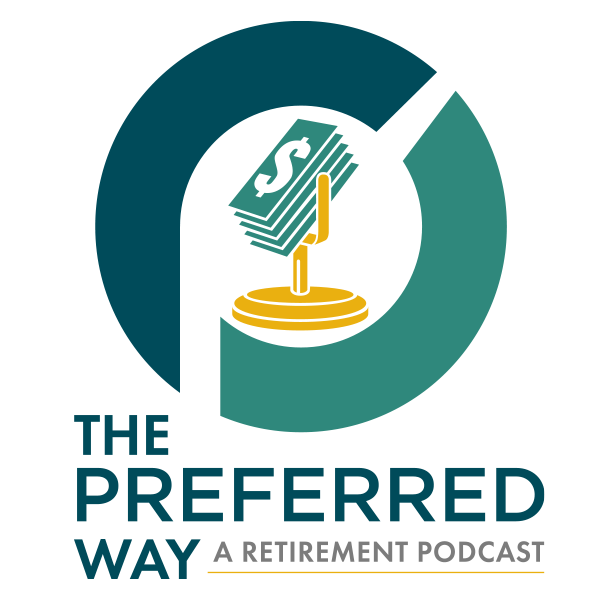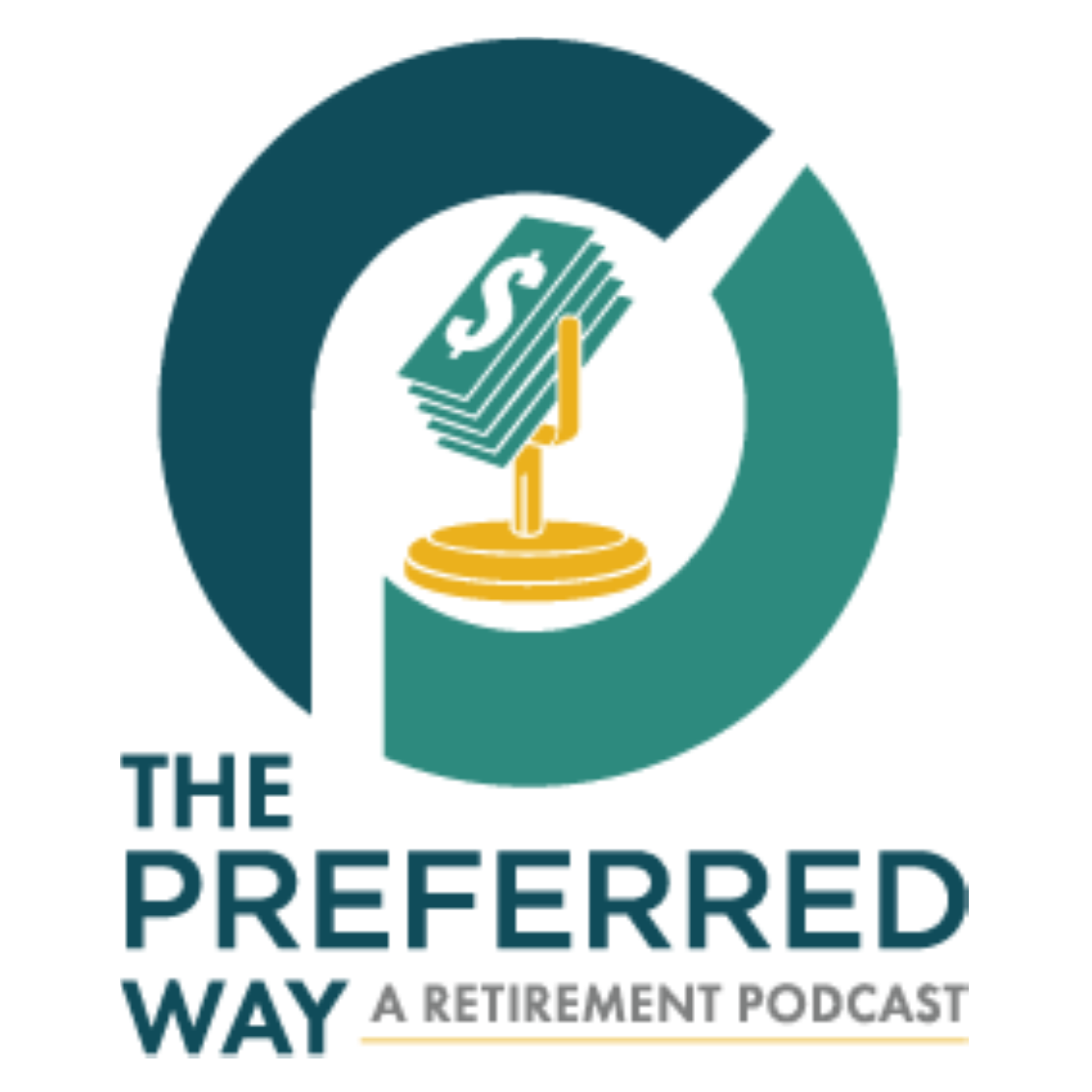[00:00:01] Speaker A: You're listening to PTC point of view, brought to you by preferred trust Company, the preferred custodian for all alternative investments. We're here to provide retirement savers like you with the tools you need to succeed. Need a confidence boost when it comes to investing outside of the stock market? Do you want the power to build a tax sheltered nest egg that will last through your golden years? You've come to the right place. Turn up your speakers and turn off cruise control, because we're taking you on the alternate route to investing with your IRA.
[00:00:40] Speaker B: Welcome back to PTC Point of View. Today we have a company partner coming in the studio to talk about their investment opportunity. Founded in 1995, Ignite funding has evolved with the changing real estate landscape. Their original business model began as a traditional home mortgage lender, providing lending to homebuyers. The demand for lending from homebuyers and developers kind of reshaped their business in 2011. Since that time, Ignite funding has funded over a billion in loans with investor capital. Just as a reminder, preferred trust company does not offer investments, and we cannot give investment advice. We are just here to inform you of the available options that you can invest in using qualified funds in your self directed IRA. So, everyone, please welcome Izzy from preferred trust company and Misty Bethany from ignite funding.
[00:01:40] Speaker C: All right, Misty, let's jump right into it. Tell us a little about. A little bit about who ignite funding is and what you guys do over there.
[00:01:46] Speaker D: Ignite funding is a commercial mortgage loan broker, and we're offering short term investments for long term investors.
[00:01:55] Speaker C: Oh, I like the slogan. Like it?
[00:01:57] Speaker D: Yeah. So, basically, ignite funding is offering, you know, ten to 12% returns to investors on collateralized real estate investments with a monthly income stream.
[00:02:10] Speaker C: So, Misty, what exactly is a trust deed?
[00:02:13] Speaker D: So, a trust deed is a promissory note that is secured by a deed of trust recorded on the property. So, basically, a borrower is going to execute a promissory note, which is payable to the investors with the intent that there's a certain interest rate, which is all disclosed on that note as well. It's essentially the collateral, and then that deed of trust is then recorded in the county in which the property is located. The investor is a beneficiary on that property, and if we needed to foreclose on the property, that is the collateral, which would then be transferred to the investor as an owner or member on the property, can you tell us a.
[00:02:59] Speaker C: Little bit more about who ignite funding lends to? You said something about borrowers.
[00:03:03] Speaker D: Yeah. So our borrowers are builders and developers.
They come to us for short term financing. Could be for land acquisition, could be develop properties, construct properties. And when I say short term, typically nine months.
[00:03:19] Speaker C: So do you, how do you guys fund those, those loans? And is that what you guys are looking for in investors?
[00:03:24] Speaker D: It absolutely is. So the investors are actually, in this case, the bank for these borrowers.
[00:03:30] Speaker C: So are the types of projects that you guys are lending on, are these like fix and flips? Are these like single family homes? What kind of projects are they?
[00:03:37] Speaker D: Typically not fix and flips, although we've done them in the past, but more. More recently. What you're going to see is residential developments, commercial centers, medical, those kinds of projects.
[00:03:51] Speaker C: So bigger commercial scale things.
[00:03:53] Speaker D: Yes.
[00:03:54] Speaker C: Gotcha. So where in the US are a lot of these projects at right now? Are they primarily here in Nevada or primarily the southwest?
[00:04:01] Speaker D: But really, we've done loans across the United States, so, I mean, we've had some in Pennsylvania, Illinois. We just like to stay in our backyard, which is the southwest.
[00:04:12] Speaker C: Gotcha. Is there a preference as far as the states? Like, does like a state like Nevada, when you fund a loan there, is it different than funding a loan in, let's say, a state like Missouri?
[00:04:22] Speaker D: It can be. So there's basically two types of states, and they are called judicial and non judicial. What that means? It sounds real fancy. It just means how you would go about foreclosing on the property if you had to. Exactly. Like the name implies, some states, it would be a nonjudicial foreclosure. Obviously, anything that stays out of the courts is quicker and less time. Time and less money. Right. Judicial has to go through the courts, but we do operate in both kinds of states.
[00:04:54] Speaker C: Why do borrowers come to you when they can go to a bank?
[00:04:57] Speaker D: Time. Time is of the essence. So we can fund loans quickly and without all the paperwork, hoops and things like that that a bank has. And when we say that we're gonna fund, we do fund. So reliability and time.
[00:05:14] Speaker C: Yeah, it's definitely something important, especially in the real estate industry.
So what makes trustee investing ignite different than some of those trendy crowdfunding platforms that we see all over the Internet?
[00:05:25] Speaker D: We are heavily regulated, so we are licensed and regulated in the state of Nevada as mortgage loan originators. They audited us. You know, there's a lot of scrutiny on what we do, and that is for not only the benefit of the borrower, but our investors as well.
[00:05:42] Speaker C: Right. I think some of the things you had mentioned that probably dictate a little bit different or differentiate us, ignite funding themselves than the crowdfunding platforms. Is that the way the collateral is set up? There is some type of collateral, whereas.
[00:05:55] Speaker D: Yes, that's true too.
[00:05:56] Speaker C: Some of the ones I've seen on those platforms, I can't remember some of the names, but they're usually not in a first lien position. There's no collateral, you're not collateralized on your investment. And basically it's almost a fundamental.
[00:06:08] Speaker D: Those investors, you're exactly right. And that something I probably shouldn't have bypassed is, again, these are collateralized real estate investments. The investors are recorded on that deed of trust and we don't own it. They do. They do as the investor.
[00:06:26] Speaker C: So is this investment only for accredited investors or can non accredited investors get involved?
[00:06:30] Speaker D: Non accredited are certainly welcome to invest. There are suitability requirements and it's fairly low, actually. So suitability for these kind of investments is one of two criteria. The first being household income of 70,000 or greater for the current year, previous two years, with the expectation that that level is going to continue, or a household net worth of 250,000 exclusive of their primary residence.
[00:07:05] Speaker C: So is it pretty easy for people to get started investing in ignite funding?
[00:07:08] Speaker D: It's very easy. It basically comes down to just opening an account. There's no cost, of course, to investing with Ignite. So the first step is to open an account with Ignite. From there, start looking at all of the loan options. When somebody finds one that they like, they are certainly welcome to discuss all those details with us and then choose that first investment. And that's how easy it is.
[00:07:32] Speaker C: So can you tell me a little bit about how those investments would work in a self directed Iraq?
[00:07:36] Speaker D: Yeah. A self directed IRA is a great way to invest at Ignite funding. No matter what stage in life somebody's in, if they are starting out and accumulating wealth, it is perfect. Those interest payments are returned monthly to the IRA, and that allows the investor to reinvest those as they have payoffs and other things, or accumulate the minimum investment amount to keep that growing and earning interest.
And even for our older investors who now are in a distribution phase of life, they often find it useful to use that monthly income stream for their withdrawals and using that for their income.
[00:08:22] Speaker C: I like it. I like it. A company partner that understands a little bit about the IRA services and the industry that we are in. So you touched on something I want to go over a little bit more is that you said that the income that's produced from these notes, that ignite funding provides. It goes back to the IRA itself.
[00:08:41] Speaker D: It does.
[00:08:42] Speaker C: Okay. So it's a little bit different than a cash account. So, like, if investors were investing with the checking or savings, the funds go right over there, right back over to the cash, versus here they go right back into the IRA.
[00:08:52] Speaker D: That's right.
[00:08:53] Speaker C: So some of the benefits of that would be if it was a traditional, it would be tax deferred income, and if it was set up as a roth, it'd be tax free income.
[00:09:01] Speaker D: Exactly.
[00:09:02] Speaker C: Perfect. So how many clients would you say utilize this method over at ignite funding?
[00:09:07] Speaker D: You know, I would say about half of our clients invest through an IRA. Even with our investors that come on, they're investing through their cash account. Once they find out that they can invest in ignite through a qualified plan, we have them bringing those qualified plans over.
[00:09:24] Speaker C: Nice. Yeah. Diversification is very important for everybody out there, especially in the real estate game. Next question I had for you is how does it work when, let's say, how are two companies would work together? Let's say an investment agent over at ignite funding is working with a client that also has IRA funds over at preferred trust.
How would you say they work together and make it easier than other custodians?
[00:09:51] Speaker D: Yeah, it's a seamless relationship, really, but it is put back into the investors, you know, what they're comfortable with. And what I mean by that is preferred trust has an interested party designation form that investors can complete to grant ignite funding sales representatives access to that investor's account.
And when I say access, what I mean is view only access. They can see balances. They can see transactions.
[00:10:21] Speaker C: Yeah, you can't make transactions or move funds.
[00:10:23] Speaker D: Right, exactly. And that. Why is that a benefit? It's a benefit is that interest is paid because we can help the investors to know when they've accumulated enough to choose a new loan, increase their investment amount, and really earn on the cash that they're earning inside there through their investments.
[00:10:41] Speaker C: Right. Let's talk a little bit about how, how quickly we can fund. Funding is very important in the real estate industry, and I know that you deal with this on a day to day basis, so can you elaborate a little bit more about on the relationship we have and how we're able to make sure that we do fund in a timely manner?
[00:11:00] Speaker D: We love working with preferred trust because that is the number one advantage for our clients who utilize preferred trust, is we can literally request funds same day as long as documents are complete. And, you know, all the I's have been dotted, t's crossed. On the ignite funding side, we request funds from preferred and get those funds returned the same day, which is an advantage for an investor because they could, in theory, go on a loan that same day and start earning interest right away.
[00:11:36] Speaker C: Exactly. That allows us to really, truly say that we keep investors funds working from them as much as possible.
I know you've probably heard some horror stories from other custodians, previous and past, and we just want to make sure for the listeners out there, it is very, very important. Regardless if you're choosing preferred trust or another custodian, always pay attention to the funding times, because it could really be detrimental to the returns you're receiving. Regardless, if you're investing ignite funding, another real estate company, mineral rights, whatever it could be, it's very important that you do have a custodian that's not just compliant, but also understands that these type of investments are so important to your overall portfolio. But the whole entire point of that is, is that if your money's not working for you, it's. You're not going to be making as much of a return.
[00:12:26] Speaker D: That's exactly right. Because it's pretty standard for other custodians to take a few weeks. Right. And that's on the ones that are really on top of things. And what that means is you're having a payoff on a loan and it's going to take two, three weeks to get that money reinvested. That's two to three weeks of lost interest.
[00:12:48] Speaker C: So let's get into the cost and fees related to investing at ignite funding through a self directed IRA. So let's say you do have a preferred trust account, and you decide to make a $50,000 investment over at ignite funding. What kind of fees would an ignite funding investor pay?
[00:13:04] Speaker D: Ignite doesn't charge their investors any fees to invest with us. So zero on the ignite funding side. And then you just would want to look at your preferred trust schedule.
[00:13:14] Speaker C: Exactly. So, on the preferred trust side, if you're looking to invest in trust deed investments over at ignite funding, your fee would actually only be $20. And that's to enact the entire transaction on the behalf of your IRA over to ignite. So in total, really, you're looking at $0 from the ignite funding standpoint, and a $20 transaction fee from the preferred trust standpoint on that.
[00:13:37] Speaker D: And that's $20 complete.
[00:13:39] Speaker C: Yeah, $20 complete. That's about it right there. And then if you are wanting to do additional funds. Typically, we actually don't even charge you the additional $20 because it's just, we're just doing the exact same thing we've already done and we already have the investment documents on hand for you guys. So there's really not any additional work we'd have to do. And we do see repeat investors do that.
[00:13:59] Speaker D: Yeah, absolutely.
[00:14:00] Speaker C: So misty, you mentioned that ignite funding doesn't charge any fees to their investors on the investment side. So how does ignite funding make money?
[00:14:06] Speaker D: That's a great question. So ignite funding makes their money through the borrower. So when we underwrite a loan, there's an origination fee that the borrower pays to ignite funding. And in addition, we charge a servicing fee that the borrower pays each month through that monthly interest. And that actually, you know, from a compliance standpoint, is a good thing for investors. Because if that's how ignite funding is making their money, then if an investor were to not make interest payments, ignite wouldn't be earning any fees. That means our interests are directly aligned with our investors.
[00:14:43] Speaker C: Nice. Something we really don't see a lot of the times with many other investment companies. That made me actually want to touch on another topic that for your business investment, I know that we really cover, which is how long are these investments and what is the minimum?
[00:14:56] Speaker D: Yeah, the minimum investment is $10,000. Typically, investments are nine month terms. Often there may be an extension, and that extension is up to the borrower. So if there is an optional extension in the loan terms, the borrower is the one who can choose to use it. Investors would want to look at that as an 18 month loan.
[00:15:19] Speaker C: So the investors don't have that option. So when they do see those in the investment documents strictly on the borrower side.
[00:15:24] Speaker D: That's right.
[00:15:27] Speaker B: Preferred trust Company is hosting an event here very soon. It is called Pillars of Finance. Pillars of Finance is an investment community created by industry experts for investors of all kinds. This year it is taking place virtually on April 4 at 03:00 p.m. if you would like to learn more information, go to pillarsoffinance.com or click the registration link in the podcast description. And once again, thank you for listening to PTC point of view.
[00:16:00] Speaker C: Let's jump into more of our relationship and how, you know, preferred trust and ignite funding, how long they've been working together for. So, Misty, since you've been here, how long have you been over at ignite.
[00:16:09] Speaker D: Funding for most recently, nine years. And that entire time we've been working with preferred trust.
[00:16:16] Speaker C: Nice. Yeah, I love working with ignite funding and the aspect of their deal flow. That's something that's really important to IRA investors especially. You touched on the topic a little earlier about the RMD's and clients that are having to take those. If you can create enough income through trustee investments like the ones that ignite funding does offer, you could potentially not have to worry about taking any of your principle out because the RMD's could be sufficed by the interest rates that ignite funding is offering.
[00:16:44] Speaker D: Yep, that's the plan. So if you're in accumulation, we want to, you know, get you in a position where that is how you would handle your RMD's when it comes time. And if you're already there, then we want to do the same. Make sure that that monthly income stream is sufficient for your RMD's and you're not touching your principal.
[00:17:04] Speaker C: And for those listeners that we have out there that don't know what RMD stands for, that's required minimum distributions. This is actually across the board, no matter what, even if you have a. If you have a regular IRA, let's say at like TD, Ameritrade, Schwab or fidelity or anything like that, the required minimum distribution age was just updated, and that is 73 years old. So that's the year about when you turn 73. That is when you're starting to be required to take out funds from your retirement account, specifically the IRAs. Let's jump a little bit more into the investment document side of things. Typically, what do clients see on your end as far as their investment docs?
[00:17:40] Speaker D: So that's another advantage with preferred trust, because preferred trust has allowed us to basically embed the extra document, if you will, into our own documents. So you would receive the initial loan documents. It's about 30 pages. It sounds like a lot, but once you do one or two sets, it goes very quickly. And then there's always a special power of attorney that needs to be notarized. But you would not have to fill out any additional paperwork through preferred trust.
[00:18:12] Speaker C: So what type of investments do you guys have? Are you guys offering right now on ignite funding?
[00:18:16] Speaker D: So it changes quite often. We do release new loans at least weekly, and so the best place to go is our website, ignitefunding.com, and look and see what's there.
[00:18:30] Speaker C: Nice. All right, listeners, that's all we have for today. Again, we had ignite funding here being represented with Misty Bethany, chief compliance officer. Again, thank you for joining me today. And for any listeners out there that are wanting to know a little bit more about ignite funding, you go check out their website, or you can go ahead and give them a call to learn more. 7027-6100.
[00:18:54] Speaker A: Thanks for joining us for another episode of PTC Point of View, where retirement savers meet alternative investments. No support someone who's struggling with a retirement strategy? Tell them about our show. Can't wait for the next episode. To learn more, visit our
[email protected], or give us a call at 888992.



